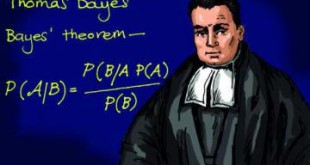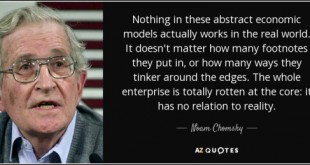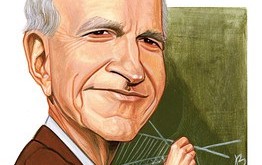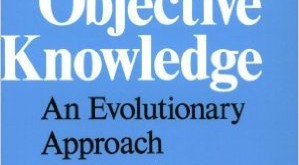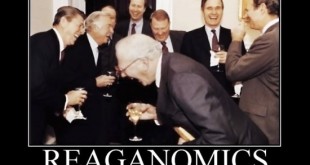Bayes theorem — what’s the big deal? The plausibility of your belief depends on the degree to which your belief–and only your belief–explains the evidence for it. The more alternative explanations there are for the evidence, the less plausible your belief is. That, to me, is the essence of Bayes’ theorem. “Alternative explanations” can encompass many things. Your evidence might be erroneous, skewed by a malfunctioning instrument, faulty analysis, confirmation bias, even fraud. Your...
Read More »Krugman on models (II)
Krugman on models (II) Last year Alex Rosenberg — chair of the philosophy department at Duke University and renowned economic methodologist — had an interesting article on What’s Wrong with Paul Krugman’s Philosophy of Economics in 3:AM Magazine: Krugman writes: ‘So how do you do useful economics? In general, what we really do is combine maximization-and-equilibrium as a first cut with a variety of ad hoc modifications reflecting what seem to be empirical regularities about how both...
Read More »Bad taste in mouth modeling
Bad taste in mouth modeling How do mainstream economists react when confronted with the monumental absence of empirical fit of their macroeconomic models? Well, they do as they always have done — they use one of their four pet strategies for immunizing their models to the facts: (1) Treat the model as an axiomatic system, making all its claims into tautologies — ‘true’ by the meaning of propositional connectives. (2) Use unspecified auxiliary ceteris paribus assumptions, giving all claims...
Read More »The best advice I ever got as a scientist
The best advice I ever got as a scientist Be as clear as you can about the various theories you hold, and be aware that we all hold theories unconsciously, or take them for granted, although most of them are almost certain to be false … And try to construct alternative theories — alternatives even to those theories which appear to you inescapable; for only in this way will you understand the theories you hold. Whenever a theory appears to you as the only possible one, take this as a sign...
Read More »Does more government help or hurt?
Does more government help or hurt? [embedded content] Through history public debts have gone up and down, often expanding in periods of war or large changes in basic infrastructure and technologies, and then going down in periods when things have settled down. The pros and cons of public debt have been put forward for as long as the phenomenon itself has existed, but it has, notwithstanding that, not been possible to reach anything close to consensus on the issue — at least not in a long...
Read More »Probabilistic irrationalism
The initial choice of a prior probability distribution is not regulated in any way. The probabilities, called subjective or personal probabilities, reflect personal degrees of belief. From a Bayesian philosopher’s point of view, any prior distribution is as good as any other. Of course, from a Bayesian decision maker’s point of view, his own beliefs, as expressed in his prior distribution, may be better than any other beliefs, but Bayesianism provides no means of justifying this position....
Read More »DeLong, Summers & Krugman on models
DeLong, Summers & Krugman on models Larry Summers, Brad DeLong, and Paul Kugman are having an extended discussion on the role of models in economics on their blogs this week. That’s good. Since the model is the message in economics today, that is actually the most important discussion possible to have in economics. Krugman is arguing that models are not ‘always the right guide for policy, but still necessary for disciplining our policy preferences.’ According to Krugman, ‘the...
Read More »Courage
Dignity, a better life, or justice and rule of law, are things worth fighting for. Not to step back – in spite of confronting the mighty and powerful – creates courageous acts that stay in our memories and means something – as when Rosa Parks sixty years ago, on December 1, 1955, in Montgomery, Alabama, refused to give up her seat to make room for a white passenger.
Read More »Joke of the century
Joke of the century Inequality continues to grow all over the world. In case you think that it’s different in my own country — Sweden — you should take a look at data from Statistics Sweden and this (Swedish) video. The Gini coefficient is a measure of inequality (where a higher number signifies greater inequality) and for Sweden we have this for the disposable income distribution: Source: Statistics Sweden and own calculations What we see happen in the US, the UK, and Sweden,...
Read More »Calibration — how to perform decades of scientific fraud
Calibration — how to perform decades of scientific fraud One may wonder how much calibration adds to the knowledge of economic structures and the deep parameters involved … Micro estimates are imputed in general equilibrium models which are confronted with new data, not used for the construction of the imputed parameters … However this procedure to impute parameter values into calibrated models has serious weaknesses … First, few ‘deep parameters’ have been established at all … Second,...
Read More » Lars P. Syll
Lars P. Syll

